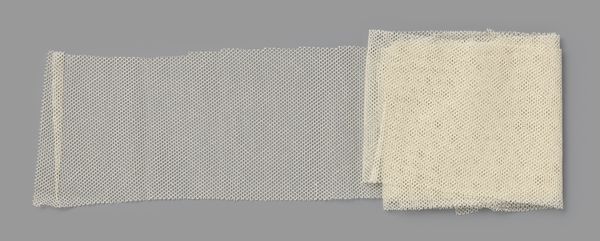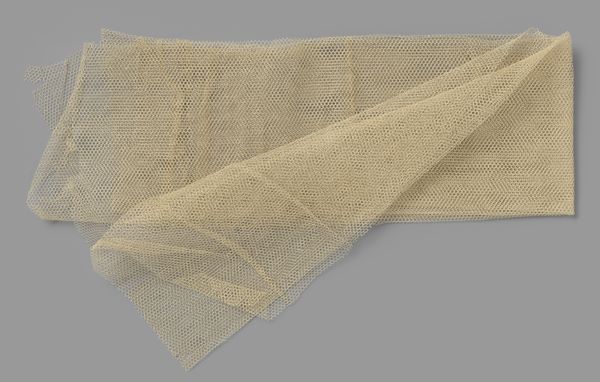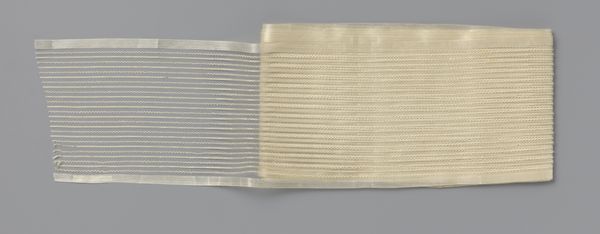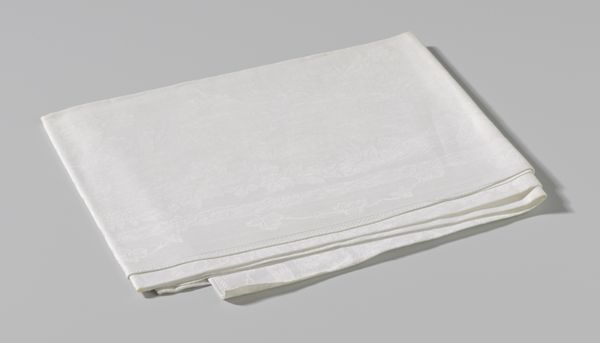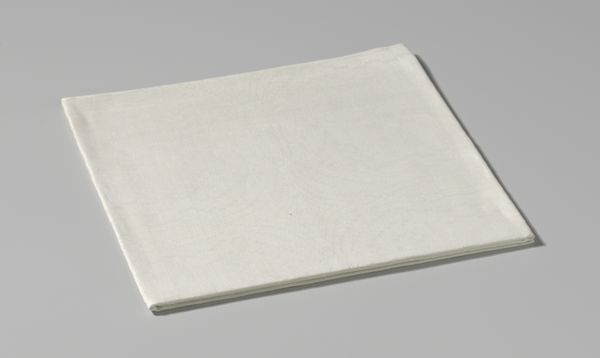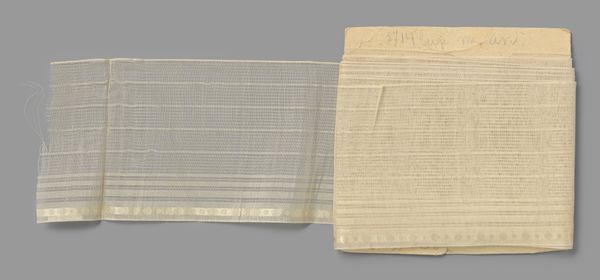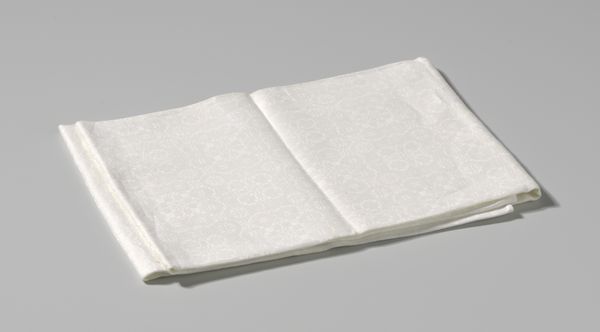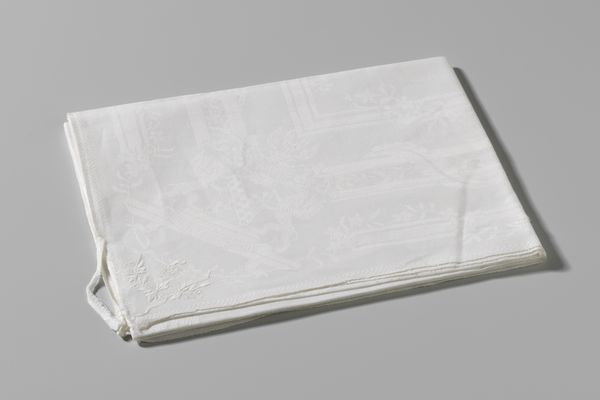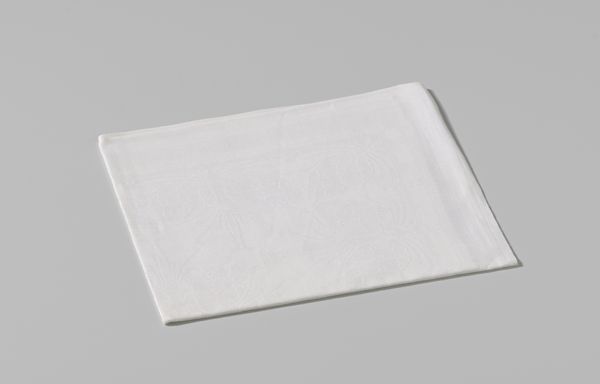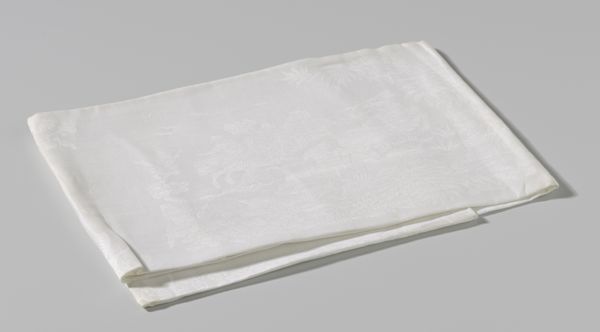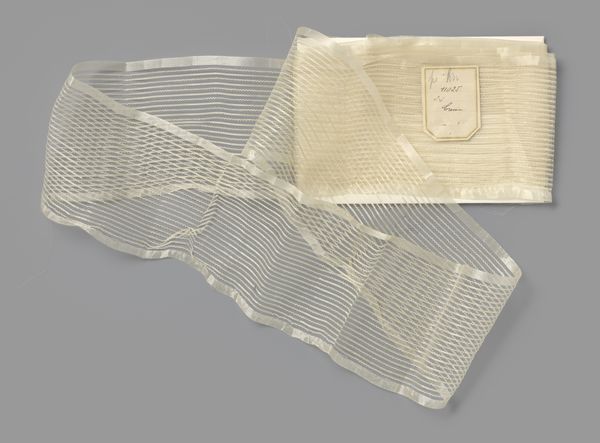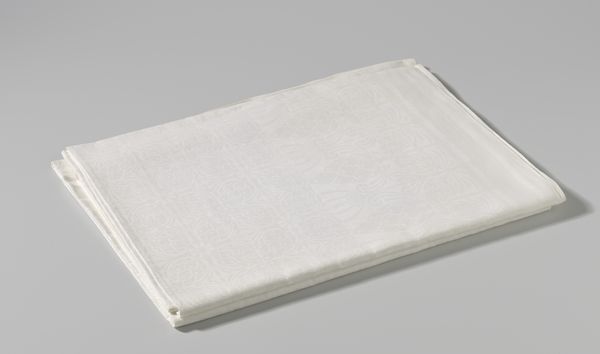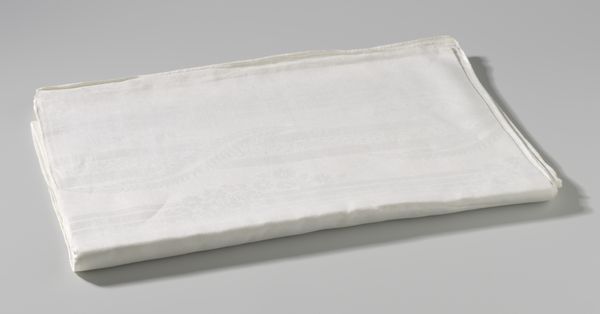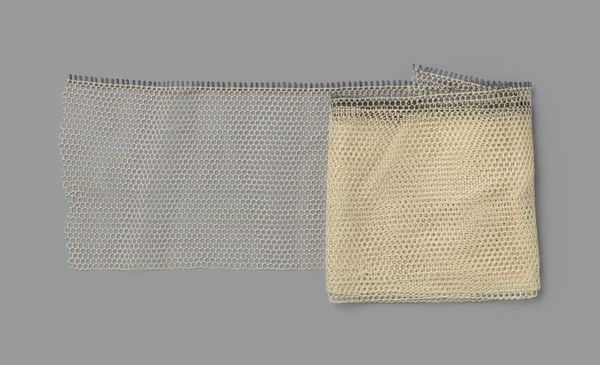
fibre-art, weaving, textile
#
fashion design
#
underwear fashion design
#
fibre-art
#
fashion mockup
#
weaving
#
textile
#
fashion and textile design
#
fashion based
#
geometric
#
fabric design
#
clothing photo
#
fashion sketch
#
imprinted textile
#
clothing design
Dimensions: width 52 cm, length 55 cm, width 14.5 cm, length 29 cm
Copyright: Rijks Museum: Open Domain
Gustav Schnitzler made this creme-white cotton tulle, but the date of creation is unknown. As an object held in the Rijksmuseum, it offers an interesting window into the cultural and economic history of textile production and consumption. Tulle, a lightweight netting, was highly desirable for fashionable clothing and household items. It’s a material that speaks to larger trends in manufacturing. Because of its delicate and decorative qualities, it would have been popular among the middle and upper classes. The industrial production of such textiles depended upon colonial trade routes through which raw materials, such as cotton, were imported from overseas. We must also consider labor practices at this time. Was this made in a factory? What were the working conditions like? Examining the history of textiles like this requires thinking about global trade, class structures, and the changing technologies of production. Museum collections, trade records, and design history publications can all help in understanding the place of this tulle in its own time.
Comments
No comments
Be the first to comment and join the conversation on the ultimate creative platform.
